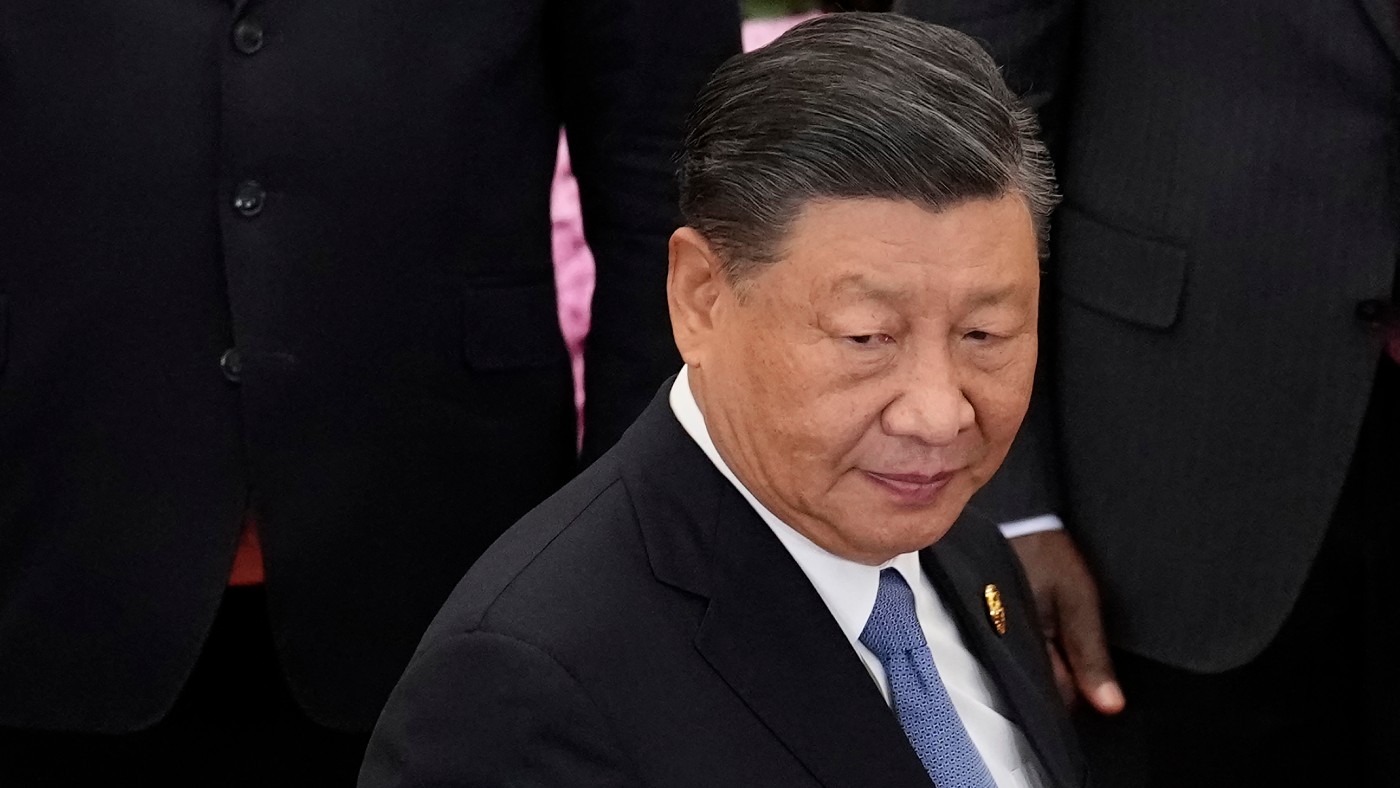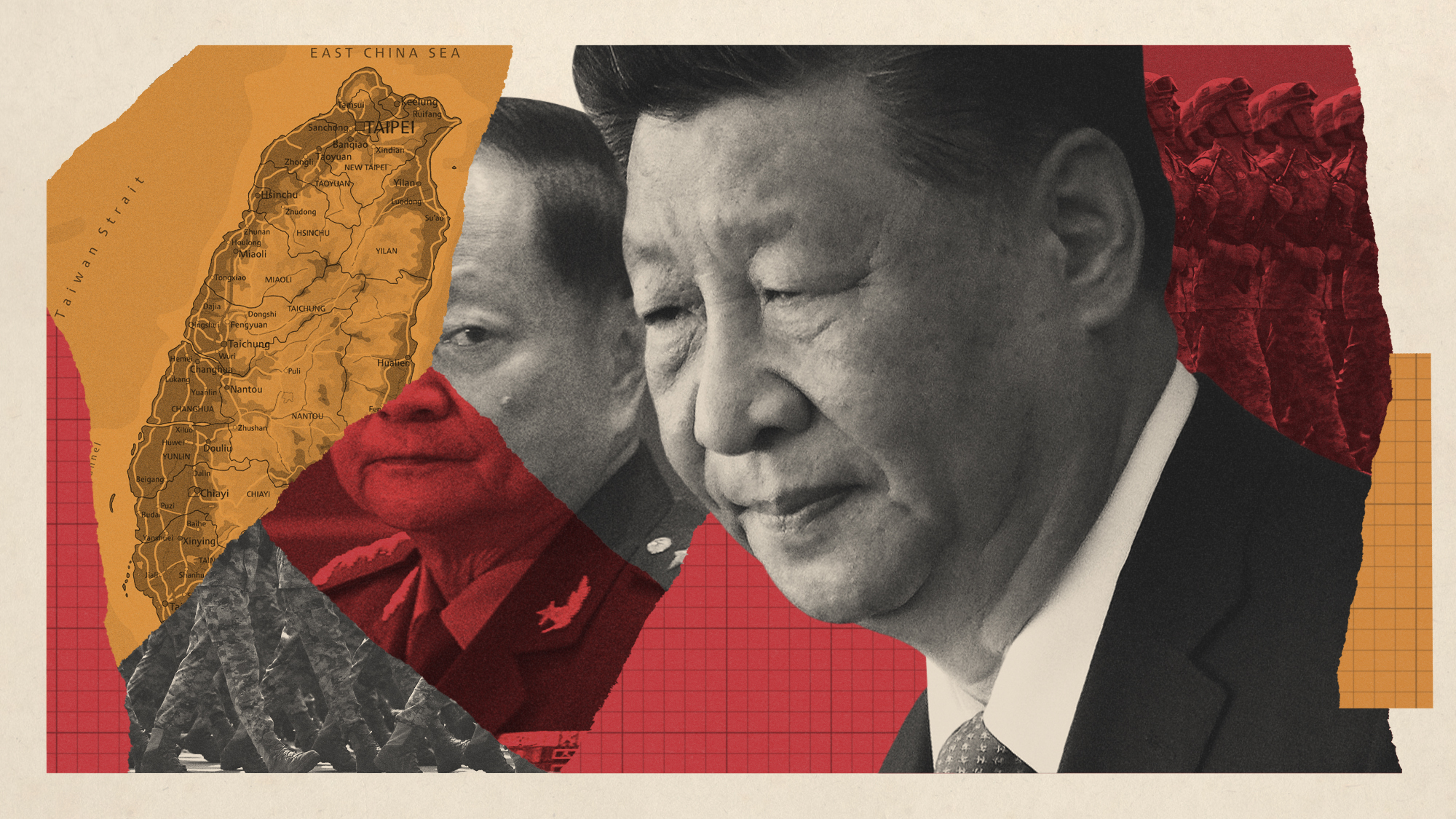How China is attempting to balance its priorities in the Middle East
Beijing under pressure to use its influence with Iran to calm Israel-Hamas conflict

A free daily email with the biggest news stories of the day – and the best features from TheWeek.com
You are now subscribed
Your newsletter sign-up was successful
China is sending its special envoy to the Middle East after the US asked Beijing to use its influence to stop the conflict between Israel and Hamas from spreading.
Washington said it hopes China's friendship with "Hamas backer" Iran could help calm the conflict, said Arab News, particularly after Beijing negotiated a reconciliation between long-time foes Iran and Saudi Arabia in March.
What has Beijing said so far?
Beijing's status as a neutral party in the region has been questioned by some since the 7 October attacks by Hamas on Israel. Where "leaders of most of the world's major powers", such as the US, UK, India and Japan, denounced Hamas and pledged their support for Israel, China took a "different approach", said Time magazine.
The Week
Escape your echo chamber. Get the facts behind the news, plus analysis from multiple perspectives.

Sign up for The Week's Free Newsletters
From our morning news briefing to a weekly Good News Newsletter, get the best of The Week delivered directly to your inbox.
From our morning news briefing to a weekly Good News Newsletter, get the best of The Week delivered directly to your inbox.
China initially urged "relevant parties to remain calm, exercise restraint, and immediately end hostilities". Following pressure, it updated its position, stating that it "opposes and condemns acts that harm civilians". However, noted the magazine, this "stopped short of explicitly calling out Hamas" and China has been "unequivocal about its disapproval of Israel's retaliatory air strikes".
On Monday, China was one of just four countries that voted for a failed UN Security Council resolution, drafted by Russia, calling for a humanitarian ceasefire in Middle East. Beijing wants an international peace conference "as soon as possible".
But one commentator went as far as saying that the conflict "looks like another of China's proxy wars". Writing for The Telegraph, Gordon Chang said: "Hamas fighters appear to have Chinese-made weapons supplied by Iran." Hamas is "Iran's proxy", he said, and Iran is, "in many respects", China's proxy.
What about relations with Iran?
Given Beijing's "warming relations" with Iran in the last few years, the US has "also turned to China" to try to encourage Iran and Hezbollah to stay out of the conflict, wrote Mohammed Sinan Siyech for South China Morning Post.
A free daily email with the biggest news stories of the day – and the best features from TheWeek.com
Therefore, despite China "undermining the US and Israel", requests for it to use its influence and prevent escalation are a "clear sign of its increasing presence in the Middle East", he added.
China has been Iran's largest trading partner for 10 years and had agreed to invest $400 billion in the country over the next 25 years, so some observers doubt whether it will intervene with Tehran.
Giorgio Cafiero, CEO of Gulf State Analytics, a Washington-based geopolitical risk consultancy, told Time that he doesn't "see anything to indicate that China has any willingness to use its leverage", to "pressure Iran" into cutting ties with Hamas and other groups.
China's unwillingness to condemn Hamas may "stem from a more pragmatic interest in keeping itself in the good graces of Arab states in the region", said Time, where China is "eyeing an ambitious economic expansion".
But others feel financial ties are why Beijing will be keen to get involved. The region plays a "key economic role in China's growth", said CNN, because the Middle East contributes more than half of the country's oil imports – or a little more than one third of the country's total oil consumption. Therefore, China "can't afford another big conflict" there.
If war between Israel and Hamas "engulfs other nations", it could "hurt China badly", a commentator told the broadcaster. "Regional conflagration" means "long instability", said Ahmed Aboudouh, an associate fellow at Chatham House, and "long instability means no business for China in the Middle East".
What might happen next?
China will continue to feel pressure to use its influence to avoid a wider flare-up. It has become a "major stakeholder in this region whether it likes it or not", Kevin Tu, a Beijing energy consultant, told The New York Times, and it "needs to play a role to stabilize the region in the years to come".
That role may be in tandem with Moscow after Russia said yesterday that it was coordinating its policy in the Middle East with China. Russia's deputy foreign minister, Mikhail Bogdanov, held talks in Doha with Zhai Jun, China's special envoy for the Middle East, to discuss the crisis.
But Chang has accused China of simply supporting the "aggressors" of Hamas. He claimed that China's president Xi Jinping will "stop at nothing" to achieve his vision of the "Chinese dream" – the "complete control of humanity".
Chas Newkey-Burden has been part of The Week Digital team for more than a decade and a journalist for 25 years, starting out on the irreverent football weekly 90 Minutes, before moving to lifestyle magazines Loaded and Attitude. He was a columnist for The Big Issue and landed a world exclusive with David Beckham that became the weekly magazine’s bestselling issue. He now writes regularly for The Guardian, The Telegraph, The Independent, Metro, FourFourTwo and the i new site. He is also the author of a number of non-fiction books.
-
 The ‘ravenous’ demand for Cornish minerals
The ‘ravenous’ demand for Cornish mineralsUnder the Radar Growing need for critical minerals to power tech has intensified ‘appetite’ for lithium, which could be a ‘huge boon’ for local economy
-
 Why are election experts taking Trump’s midterm threats seriously?
Why are election experts taking Trump’s midterm threats seriously?IN THE SPOTLIGHT As the president muses about polling place deployments and a centralized electoral system aimed at one-party control, lawmakers are taking this administration at its word
-
 ‘Restaurateurs have become millionaires’
‘Restaurateurs have become millionaires’Instant Opinion Opinion, comment and editorials of the day
-
 Should the EU and UK join Trump’s board of peace?
Should the EU and UK join Trump’s board of peace?Today's Big Question After rushing to praise the initiative European leaders are now alarmed
-
 Witkoff and Kushner tackle Ukraine, Iran in Geneva
Witkoff and Kushner tackle Ukraine, Iran in GenevaSpeed Read Steve Witkoff and Jared Kushner held negotiations aimed at securing a nuclear deal with Iran and an end to Russia’s war in Ukraine
-
 ‘The mark’s significance is psychological, if that’
‘The mark’s significance is psychological, if that’Instant Opinion Opinion, comment and editorials of the day
-
 The UK expands its Hong Kong visa scheme
The UK expands its Hong Kong visa schemeThe Explainer Around 26,000 additional arrivals expected in the UK as government widens eligibility in response to crackdown on rights in former colony
-
 ‘Hong Kong is stable because it has been muzzled’
‘Hong Kong is stable because it has been muzzled’Instant Opinion Opinion, comment and editorials of the day
-
 ‘Bad Bunny’s music feels inclusive and exclusive at the same time’
‘Bad Bunny’s music feels inclusive and exclusive at the same time’Instant Opinion Opinion, comment and editorials of the day
-
 Is the Gaza peace plan destined to fail?
Is the Gaza peace plan destined to fail?Today’s Big Question Since the ceasefire agreement in October, the situation in Gaza is still ‘precarious’, with the path to peace facing ‘many obstacles’
-
 What do Xi’s military purges mean for Taiwan?
What do Xi’s military purges mean for Taiwan?Today’s Big Question Analysts say China’s leader is still focused on reunification